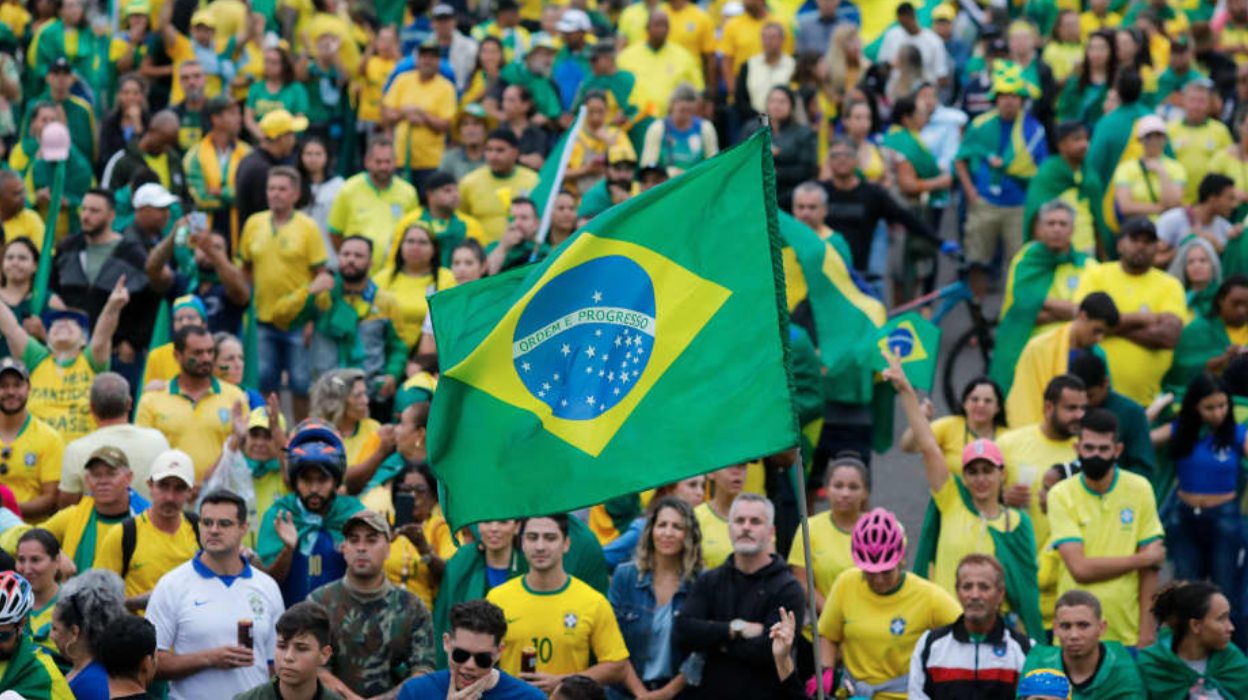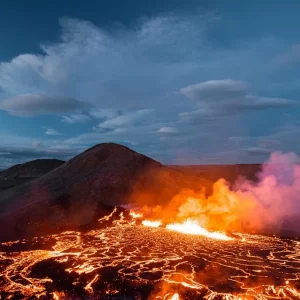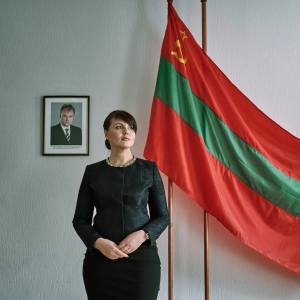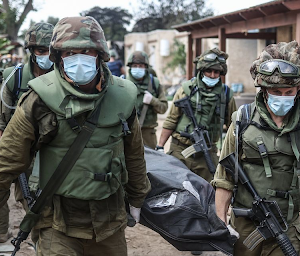Despite being free from military dictatorship since 1988, Brazil has struggled to build a robust democracy. However, one area of democracy in which Brazil has flourished has been the civil society sector. In times where government action was absent or insufficient, civil society organizations have stepped in to provide and advocate for citizens. Though their strength remains, it has been challenged by an erosion of democratic norms over the past decade.
In recent years, the conditions of democratic norms and institutions faced a precipitous decline. The Lava Jato investigation, which started with a small-scale money laundering investigation, unearthed incidents of embezzlement, money laundering, bribery, and more even in the highest levels of the government. Former president Luiz Inácio Lula da Silva was one of the top names to be indicted and sent to prison on corruption charges. Besides protests and mass demonstrations, the Lava Jato investigation delegitimized the Brazilian government, public officials, and political parties.
Compounding the corruption scandals of the mid-2010s was an economic recession. In stark contrast to the social welfare spending and economic gains Brazilians enjoyed during the 2000s, the economic recession that hit the country in 2014 was one of the worst recorded economic crises in its history. With an 8% GDP decline from the end of 2014 to the beginning of 2017, Brazilians had much reason behind their dwindling faith in their government and political leaders.
Partially as a result of the deep economic and political turmoil in the years prior, the country elected Jair Bolsonaro in the 2018 presidential election. From the get-go, Bolsonaro openly voiced his discontent with democratic norms by threatening to imprison his political opponents and that he would not accept election outcomes if he was not declared the winner. Democracy’s prospects did not look any better during his tenure. By mid-November of 2021, Bolsonaro had already racked up an impressive 63 impeachment requests. He also openly supported the former military regime and advocated for more military presence in his own government. Additionally, his mismanagement of major events and sectors of Brazilian administration such as the COVID-19 pandemic and the Amazon rainforest showed an inability to adequately provide for and represent all Brazilian citizens. Bolsonaro’s failures in the presidency following a period of political and economic turmoil led to an opening for Brazil’s resilient civil society to step in.
Brazil ranks sixth in the world for cumulative COVID-19 cases but second in total deaths. Bolsonaro infamously led one of the worst governmental responses to COVID-19 out of any world leader, resulting in a senate committee to investigate and evaluate his failures. To attain his overarching goal of achieving “herd immunity”, Bolsonaro downplayed the threat of the virus, encouraged large gatherings, and discouraged people from wearing masks early on. Beyond his own rhetoric, he also undermined the ability of the federal and state governments to coordinate their own responses. Regarding immunization, Bolsonaro failed to secure doses of the vaccine in addition to spewing harmful misinformation about its effects.
Despite Bolsonaro’s efforts to hinder any sort of appropriate response to the pandemic, civil society members both through organizations and government branches, were able to undermine his wishes. Activists and bureaucrats were able to secure doses of the vaccine for Brazil and disperse them to citizens. Community-based groups like that of Coletivo Papo Reto in the poorer areas of cities like São Paulo took up efforts to distribute supplies and educate people about the pandemic in efforts to fight off misinformation. These groups also worked in tandem with non-governmental organizations like Parceiros da Educação to create isolation shelters so that people had an alternative option to going home and potentially infecting loved ones.
Civil society organizations also worked in conjunction with Indigenous communities to fight for legal protections in the struggle with the COVID-19 pandemic. The Association of Indigenous Peoples of Brazil joined together with various political parties and other organizations to ask the government to adopt protectionary measures for Indigenous communities against epidemics including implementing sanitation barriers and providing medical supplies. Despite being vetoed by Bolsonaro, the legislation represents a strong effort by civil society and indigenous organizations to step in when the government refuses to help.
In addition to his mismanagement of the COVID-19 pandemic, Bolsonaro has also made some serious missteps in regard to the environment and his oversight of the Amazon rainforest. Despite being the home of two-thirds of the Amazon rainforest, Brazil increased its deforestation efforts under Bolsonaro’s administration to accommodate for development and the production of soy and beef products.
The butchering of the Amazon will have impacts that go beyond climate change–many Brazilians are already experiencing adverse health effects from disruptions like illegal mining. In an attempt to increase development and extract resources, Bolsonaro has encouraged mining and pursued a policy that would allow for legal mining to take place. To add to Bolsonaro’s lack of interest in stopping illegal mining and deforestation, it is also hard for local and state authorities to stop these phenomena from happening. Often, these illegal activities result in harmful environmental degradation that affects the health of nearby populations, often indigenous communities. Nearby water sources are being polluted with mercury, traditional diets of some indigenous groups are being disrupted causing malnutrition in children, and malaria cases have increased as a result of deforestation. These are only a handful of the effects of the mismanagement of deforestation and illegal development in the Amazon.
In recent years, non-governmental organizations and other civil society groups have been taking action against deforestation and climate change. Instituto de Estudos Amazonicos filed multiple climate lawsuits aimed at the government, focused on deforestation and timber exportation. Other organizations have lobbied for policy reform in the government as well as working on the ground to fight deforestation. One such organization, Apremavi, attacks deforestation in three ways: advocating for environmental policy reform, contributing to conservation and restoration efforts, and promoting environmental education projects. Among other projects, Apremavi has also worked with local farmers to plant over 8.5 million trees and restore over 2,700 properties.
Another major organization fighting climate change and deforestation is Amazon Watch. They work specifically with local Indigenous communities to advocate for human rights, accountability, and preservation efforts. Amazon Watch’s solutions, such as increasing autonomous solar power, are informed by the Indigenous communities who are the most affected by the degradation of the rainforest.
Over the past few decades, civil society organizations in Brazil have become a central part of policy advocacy and the pushback against anti-democratic norms. Despite the degradation of Brazilian democratic institutions under Bolsonaro, his administration has not been the only poison in the veins. Corruption, syndicate and state violence, environmental concerns, and crumbling liberal democratic norms have all played a part in building the current political arena.
With the re-election of Lula, there is hope that civil society will once again be welcomed into a fruitful partnership with the government and that balance will be brought back to Brazilian democracy. Starting in 2003, Lula and his administration worked to incorporate and work with civil society organizations and officials. Two major elements of that cooperation were the creation of many new councils at the federal level, with reserved seats for civil society leaders, as well as national conferences that boasted a 70% attendance rate by civil society members. Though the quality of that involvement can be debated, more civil society figures were included in the government, and in general, pressure from civil society organizations resulted in a response from Lula’s administration.
The situation in which Lula was elected in 2022 provides a stark contrast to the situation in 2003 when he first ascended to the presidency. Lula began his first term with an air of hope and promise to meet the needs of historically underserved groups. While spirits are high in the wake of Lula’s recent election, faith in the government and democracy has been severely eroded since 2010, when Lula left office. Lula himself was arrested on corruption charges, the country fell into a period of tumultuous economic hardship, and Bolsonaro wreaked havoc on democracy and human rights. There is considerable work to be done to restore confidence in the Brazilian government and its institutions, as well as to reverse policy missteps made by Bolsonaro. Civil society organizations have aided Lula before to reach new highs for Brazil and the stars are aligning for them to do so once again.
Featured Image Source: Sergio Lima, AFP






Comments are closed.